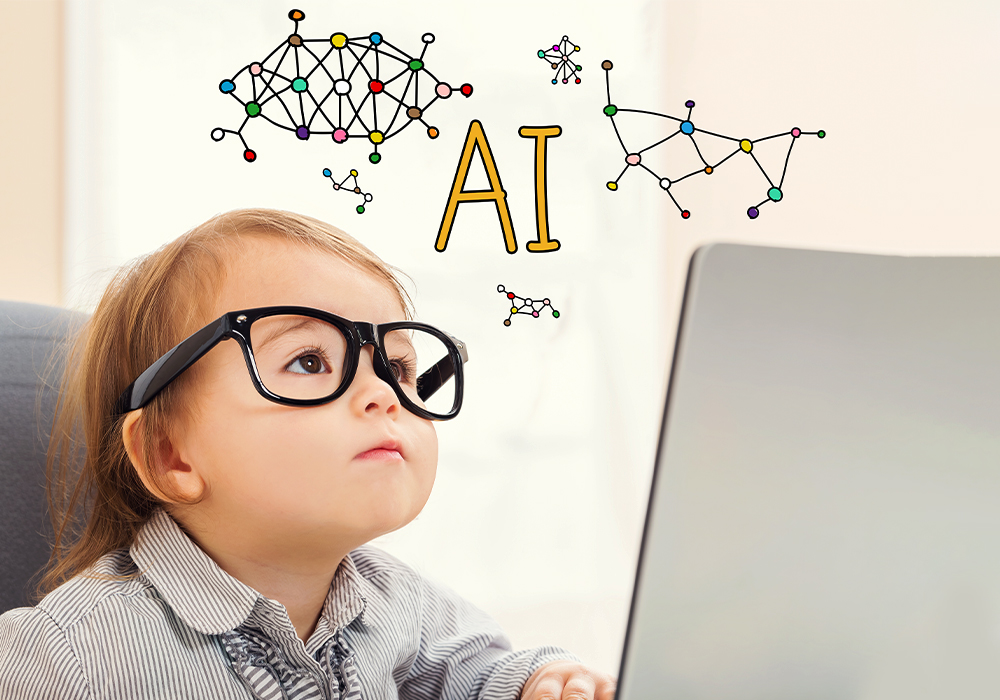Teaching AI For Children

In today’s rapidly advancing world, where technology reshapes our lives at every turn, the role of education in preparing our children for the future has never been more crucial. Among the frontiers of this technological revolution is Artificial Intelligence (AI), a field that is not just about robots or science fiction anymore. It’s about the tools and technologies that influence our daily lives, from the way we communicate to the way we work and learn.
Recognizing the importance of this, various Chennai-based NGOs like Children Charitable Trust are focusing on the evolving trend in education also educational bodies are stepping up to the challenge, integrating AI education into children’s learning experiences through vocational courses and syllabus inclusion.
Why Teach AI to Children?
Introducing AI to children from a young age foster not only familiarity but also proficiency with the technology shaping their future. It equips them with critical thinking, problem-solving skills, and a foundational understanding of how machines learn and make decisions. This early exposure demystifies technology, encouraging a generation that’s not just tech-savvy but also tech-innovative.
The Role of NGOs in AI Education
Non-governmental organizations (NGOs) are playing a pivotal role in bringing AI education to the forefront for children, especially in areas where access to the latest educational resources might be limited. By launching initiatives and partnerships with tech companies, NGOs are providing valuable resources, workshops, and programs dedicated to teaching AI in a child-friendly manner. These efforts are crucial in leveling the playing field, ensuring that children from various backgrounds have the opportunity to become fluent in the language of the future.
How Can AI Be Taught to Children?
- Simplified Concepts: Breaking down AI into understandable games is key. Children can start with the basics of coding through block-based coding platforms, gradually moving on to more complex AI concepts through interactive storytelling and games.
- Real-World Applications: Teaching AI through its applications in everyday life makes learning relatable and exciting. From voice assistants to personalized learning tools, showing how AI impacts daily activities can spark curiosity and imagination.
- Problem-Solving Projects: Engaging children in projects that solve real problems using AI encourages practical learning and innovation. Whether it’s creating a simple chatbot or a model that recognizes plant species, hands-on projects make abstract concepts tangible.
- Ethical Considerations: It’s also important to discuss the ethical aspects of AI, such as privacy, bias, and the impact on jobs. These discussions prepare children to think critically about the technology they will inevitably be a part of creating or using.
Incorporating AI into the Syllabus
Integrating AI education into the school syllabus ensures that all children get a chance to learn about this vital field. Vocational courses specifically designed for AI can offer more in-depth knowledge and skills for those who wish to explore further. This approach not only prepares students for future careers in technology but also teaches them to be informed users and creators of AI.
The Path Forward
When the Education System continues to push the boundaries, making AI education accessible and engaging, it helps children in a future where they are not just passive consumers of technology but active contributors to its evolution. By including AI in vocational courses and the regular syllabus, we’re opening doors to endless possibilities, where the next generation can lead the way in innovation and ethical technology use.
In embracing AI education, we’re not just teaching children about algorithms and data, we’re nurturing critical thinkers, problem-solvers, and, most importantly, lifelong learners. The journey into AI for children is not just about coding and machines, it’s about envisioning and building a future that’s inclusive, ethical, and boundlessly creative.


